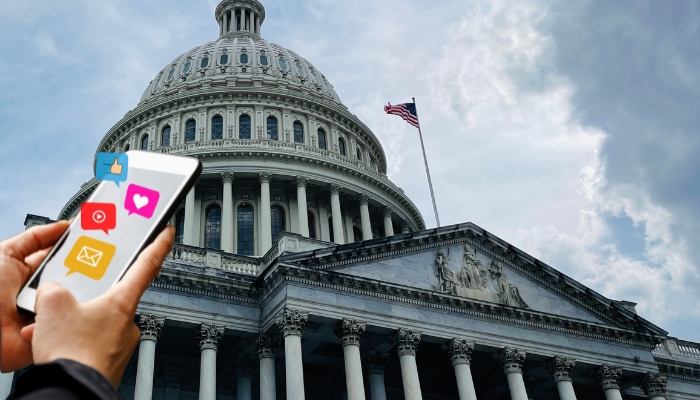Inflation Eases, Consumer Spending Prevails
Anúncios
Economic Dynamics
As we delve into the economic landscape of November, the United States witnessed a rare occurrence – a decline in prices for the first time since April 2020. The Commerce Department’s closely watched report highlighted a 0.1% drop in the Personal Consumption Expenditures (PCE) price index, suggesting a significant slowdown in inflation. Concurrently, consumer spending continued to outpace expectations, prompting discussions about the Federal Reserve’s strategy in achieving a “soft landing” for the economy.

[su_button url=”https://www.growcredit.com/” style=”flat” background=”#ff9900″ size=”15″ icon=”icon: credit-card-alt”]DISCOVER THE GROW CREDIT MASTERCARD[/su_button]
Inflation Trends: A November Reprieve
November’s PCE index exhibited a 0.1% monthly decline, marking a notable deviation from the relentless inflation trends seen in recent years. This development signals a potential shift in the economic narrative, offering relief to consumers and policymakers alike. The annual inflation rate moderated to 2.6%, showcasing a considerable improvement from the alarming peak of 7.1% recorded in June 2022. The primary driver of this decline was the tumbling prices of energy, specifically a 2.7% drop in gasoline prices.
Economists view this as a favorable outcome, aligning with the Federal Reserve’s concerted efforts to steer inflation toward its 2% target. Matt Colyar, an economist at Moody’s Analytics, expressed optimism, stating, “This trend is as graceful and encouraging as anybody could have hoped for when the Fed started lifting rates.”
Core PCE Index: Signs of Moderation
The core PCE price index, which excludes energy and food prices, displayed a notable reduction to 3.2% for the year ending in November. This retreat from October’s 3.4% annual increase is a positive indicator, bringing the index a step closer to the central bank’s 2% target rate. The core PCE price index is now at its lowest annual rate since March 2021.
Joe Brusuelas, principal and chief economist at RSM US, emphasized the significance of these developments, stating, “More importantly, the six-month annualized average rate of inflation is now up 1.87%, indicating easing inflation pressures in contrast with the 4% pace of core inflation during the first six months of the year.”
Deflationary Concerns
The PCE price index’s first monthly drop since April 2020 is a welcome change for Americans who have been grappling with persistent inflation since early 2021. However, caution is advised against prematurely labeling this as a sign of deflation. Gus Faucher, Senior Vice President and Chief Economist of the PNC Financial Services Group, highlighted the nuanced nature of the data, emphasizing the need for a holistic perspective.
Monthly data is preliminary and frequently subject to revision. The overall index is significantly influenced by volatile components like food and energy, making it sensitive to abrupt changes. Faucher added, “Absent a recession, it’s difficult to see overall deflation in the economy, because I think the labor market is going to remain solid.”
Consumer Spending: A Holiday Boost
The Commerce Department’s Personal Income and Outlays report underscored the resilience of consumer spending, which increased by 0.2% from the previous month. When adjusted for inflation, spending saw a 0.3% uptick, reflecting robust household finances. Despite initial concerns about financial strain, consumers exhibited remarkable strength, challenging expectations.

Notably, spending on goods increased by 0.5% from October, with services also experiencing a modest uptick of 0.1%. The surge in recreational goods and vehicles sales aligns with the post-pandemic trend of consumers investing in experiences and entertainment. Last week’s retail sales data further corroborated this trend, rising by 0.3% when adjusted for seasonality but not inflation.
Household Finances: Healthy Outlook
The latest data from the Commerce Department affirms that household finances remained strong in November. Personal income grew by 0.4%, showcasing a slight acceleration from the 0.3% increases seen in the preceding two months. Savings also experienced growth, with the personal saving rate ticking higher to 4.1% from 4% the month before.
The months of slowing inflation and stable labor market conditions contribute to a positive sentiment among Americans regarding the overall economy. The December Consumer Confidence Index reached its highest level since July, reflecting growing optimism. Additionally, a report from the University of Michigan showed a nearly 14% spike in its measure of consumer sentiment from November.
A Balanced Economic Outlook
As the U.S. economy navigates shifting dynamics, November’s economic indicators provide a nuanced perspective. The delicate balance between moderating inflation, sustained consumer spending, and stable labor market conditions suggests a favorable outlook. The Federal Reserve’s cautious approach and potential rate cuts in 2024 reflect a commitment to economic stability. While challenges persist, the overall sentiment points towards a resilient and optimistic trajectory for the nation’s economy.
See also: 2023: A Financial Market Retrospective
[su_button url=”https://www.growcredit.com/” style=”flat” background=”#ff9900″ size=”15″ icon=”icon: credit-card-alt”]DISCOVER THE GROW CREDIT MASTERCARD[/su_button]






